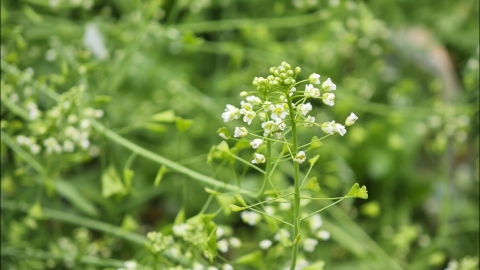What should not be eaten with shepherd's purse (Capsella bursa-pastoris)?
Generally speaking, shepherd's purse (Capsella bursa-pastoris) is incompatible with spinach, tofu, crab, preserved pork, pig liver, and other foods. The specific analysis is as follows:

1. Spinach: Shepherd's purse naturally contains a certain amount of oxalic acid. Consuming it together with other high-oxalate foods may increase oxalate intake, which can easily combine with calcium to form calcium oxalate stones, especially harmful for patients with kidney stones.
2. Tofu: The oxalic acid in shepherd's purse may combine with calcium to form insoluble precipitates, reducing calcium absorption. Long-term consumption could affect bone health and increase the burden on the gastrointestinal tract.
3. Crab: Shepherd's purse is cool in nature. According to traditional Chinese medicine, consuming it together with cold-natured foods may exacerbate spleen and stomach coldness, leading to abdominal pain and diarrhea. Those with a cold body constitution should be cautious when combining these foods.
4. Preserved pork: Shepherd's purse contains nitrates, and pickled foods often contain high levels of nitrites. Combining the two may lead to the formation of nitrosamines, especially when storage conditions are improper, increasing the risk.
5. Pig liver: Metal elements such as copper and iron in animal livers may oxidize vitamin C in shepherd's purse, reducing its nutritional value. If aiming to supplement vitamin C, it is recommended to consume these foods separately.
Although the above foods are considered incompatible with shepherd's purse, this does not mean they absolutely cannot be consumed together. In daily diets, individuals can appropriately combine these foods based on their own constitution and health conditions, while paying attention to their body's reactions.




